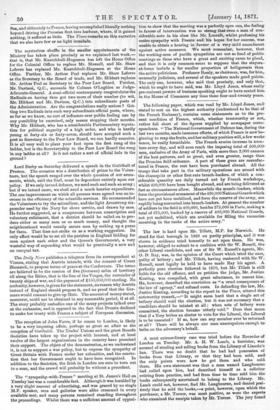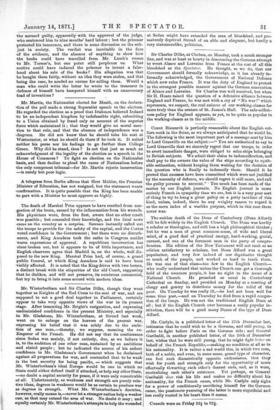A most extraordinary case was tried before the Recorder of
London on Tuesday. Mr. A. H. W. Lamb, a barrister, was accused of stealing and selling books from the Library of Lincoln's Inn. There was no doubt that he had had possession of books from that Library, or that they had been sold, and- the only points were how he got them and who sold. them. His own statement was that a man named Langbourne had called upon him, had described himself as a solicitor retiring from practice, and had from time to time sold him the- books subsequently ascertained to belong to the Library. Mr.. Lamb could not, however, find Mr. Langbourne, and denied posi- tively that he sold the books,—a point, however, upon which the purchaser, a Mr. Turner, was most positive, as were the experts who examined the receipts taken by Mr. Turner. The jury found the accused guilty, apparently with the approval of the judge, who sentenced him to nine months' hard labour ; but the prisoner protested his innocence, and there is some discussion on the sub- ject in society. The verdict was inevitable in the face of the evidence, and the absence of anything to show how the books could have travelled from Mr. Lamb's rooms to Mr. Turner's, but one point still perplexes us. What motive could have induced the prisoner to invent a false- ,hood about his sale of the books? His allegation was that he bought them fairly, without an idea they were stolen, and that teing the case, he needed no excuse for selling them. Would a man who could write the letter he wrote to the treasurer in .defence of himself have hampered himself with an unnecessary toad of inventions ?



































 Previous page
Previous page